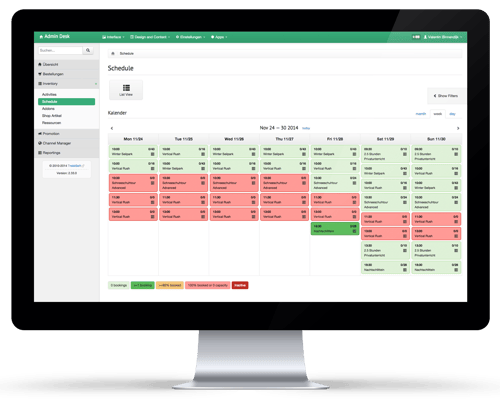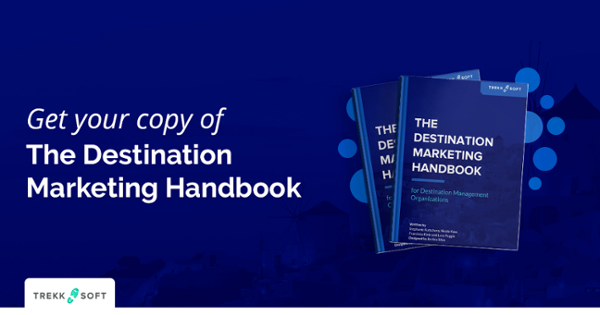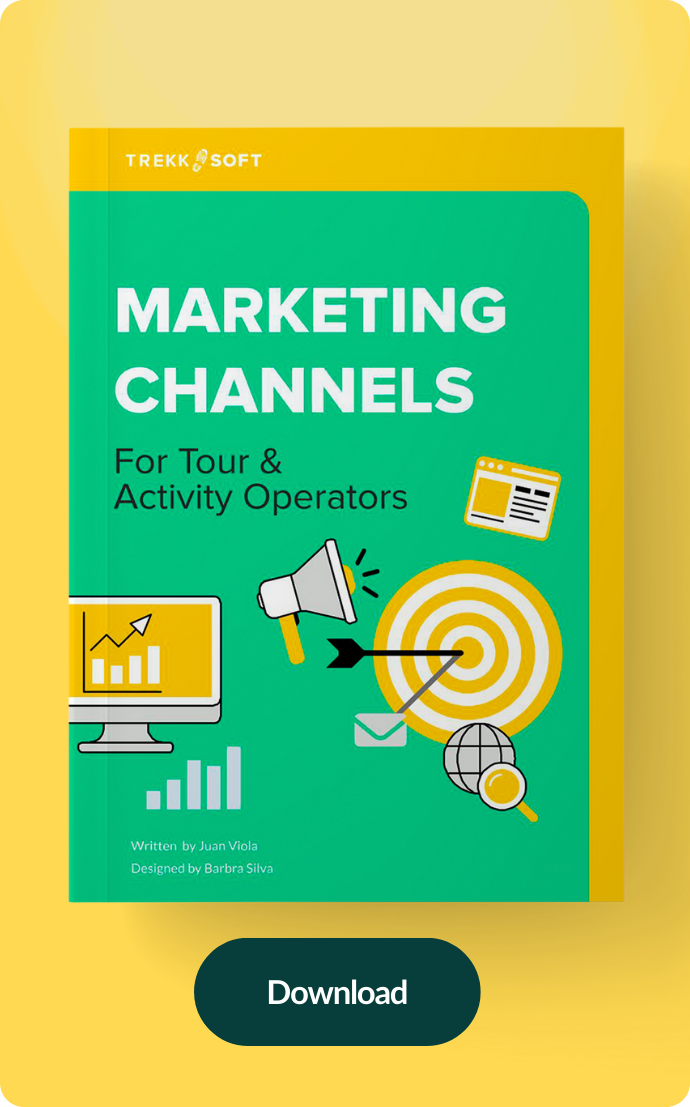At TrekkSoft, we have worked with a selection of Destination Management Organizations/Companies (DMOs/DMCs) who have opened a new revenue stream by becoming an online marketplace for tours & activities within their destination.
A DMO website tends to drive a lot of traffic from travelers look for recommendations on what to do during their visit. Why not take the opportunity to promote more businesses in the area, recommend experiences and take commission.
You should consider transforming your website into an online marketplace if:
You're a DMO looking to improve the traveler experience at your destination OR your destination lacks a DMO, but there is a clear need for an integrated platform where travelers can find information.
Want to know how to do that? Here are 5 useful tips.
1. Define your goals and strategy
Where does an online marketplace fit in?
Goals are great because they give you an idea of a where you want to be at the end of the day. However, without a strategy that is an overarching vision to achieve your goals, your business will not be able to adapt to quick changes and remain competitive in the tourism industry.

According to Graham Kenny, there are 3 steps you can take to align your goals and form a coherent strategy:
Identify which stakeholders you depend on for success. According to Graham, "without the support of stakeholders such as customers, suppliers, employees, and shareholders, for example, you have no organization. But you have to identify those who are key to the long-term survival and prosperity of your organization — and then satisfy them."
Recognize what you want from your stakeholders. "Although objectives and clear targets aren’t a substitute for strategy, you do need to design them, stakeholder group by stakeholder group, before you can develop a smart strategy for each group. Unfortunately, strategies are often created in a vacuum. They won’t be meaningful if you haven’t decided what you want them to achieve."
Recognize what stakeholders want from you. Graham refers to these as "strategic factors", external factors that "are those few things that you must excel at if you are to achieve a competitive advantage and, simultaneously, meet your corporate objectives." When in doubt, he recommends simply asking your stakeholders what they want from you.
Some stakeholders who might be important to you include tour and activity suppliers, local hotels, meeting planners, convention planners, tourists, travel agents and inbound tour operators. You can also read this article to help you determine who your stakeholders are.
When it comes to building your own marketplace, think about where and how this platform will fit into your overall goals and strategies.
2. Build your network
Get local suppliers involved.
An online marketplace should become a one-stop shop for tourists to book their accommodation, tours and activities. Your goal should be to create a strong network of suppliers, who are one of your key stakeholders, and allow them to bundle their offers to create a complete experience that can still be customized.
Get connected with other local tourism companies and start with a simple networking meeting. Get to know what other businesses are struggling with, and how your marketplace can fill that need. Brainstorm ideas and solutions to mutually benefit each other.
Create an ecosystem that allows you and your partners to cross-sell products and services, as well as direct customers back to your marketplace.

3. Go digital
Use a software solution that works.
Once you've got your strategy mapped out, look for a software solution that can support it and accelerate its execution. Make sure you have an online booking and payment system set up to really become a one-stop simplified solution for travelers who want to spend their next holiday at your destination.
On top of that, you need a live inventory that displays real-time availability to your customers and a resource manager that will update automatically. This not only allows your customers to book directly with your suppliers, but also condenses your booking administration down to a single notification email that says "You've got a booking."
Finally, you want a system that can be easily adopted by local suppliers and flexible enough to accommodate the wants and needs of your local network.
4. Consider your customers
Make life easier for them.
Which key markets are you targeting? What are they looking for when they research your destination? Furthermore, what trends have you noticed take over the travel industry in the past few years?
For example, mobile now accounts for 52% of travel-related browsing, making a mobile optimized marketplace, booking and payment system more essential now than ever.
On top of that, having a beautiful website that's easy to navigate and explore, while delivering high-quality content is great a great way to show off what your destination can offer.
Learn more how to effectively reach your target market with these articles:
How to understand your customers better by creating customer personas
A marketing guide for each stage of the customer journey

5. Build your web presence
Market your destination like never before.
As a one-stop shop for travelers visiting your destination, you should also provide other resources like city guides and restaurant recommendations. Think about what people usually ask about when they visit your destination, and write an article or two to address that topic.
Another growing trend is experiential travel, where travelers are looking for more authentic travel adventures to better understand and connect with the local culture, history and people.
Draw on what makes your destination unique and put that at the forefront of your marketing efforts, like what the small town of Odda did to make Trolltunga go viral on social media. Prioritise the remarkable experiences that people can have at your destination and use experiences to drive your marketing.
Would you like to speak to a member of our team to find out more? Click here.
Get more helpful tips from our Destination Marketing Handbook





